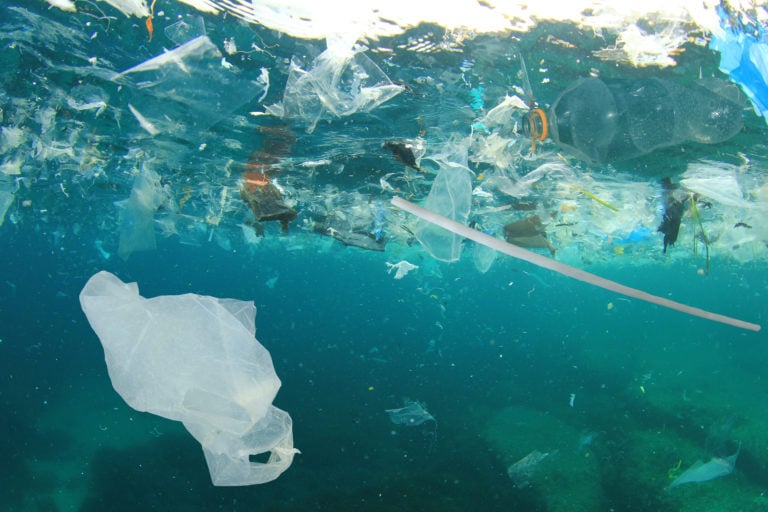Tell Congress – It’s High Time to Break Free from Plastic
By: Chris Wilke

The world is choking on plastic. We have seen the horrifying images of whales and seabirds dying of starvation with bellies full of plastic. Of sea turtles entangled in plastic bags and other materials. Of otherwise beautiful rivers or beaches, awash in plastic debris. Of children in developing countries, working in unsafe and unsanitary conditions, sorting through mountains of dangerous waste, in an effort to fulfill a false promise of recycling to consumers back home.
It’s a monumental challenge. Fortunately we now have an important opportunity to address the growing plastic pollution crisis at its source, with new sweeping legislation to protect our oceans, waterways, and the health of our communities.
Every year, close to 8 million tons of plastic waste ends up in the world’s oceans, rivers, lakes and bays, where it imperils marine life and impacts the entire food chain. In the environment, plastic lasts nearly forever. It does not degrade like other materials. Instead, it just breaks up into smaller and smaller particles called microplastics, which can now be found in nearly all waterways, including drinking water sources. Tragically, total plastic in the world’s oceans is expected to outweigh all fish by the year 2050. This is the very definition of unsustainable.
And yet, we continue to make more and more plastic every year, with production increasing faster than we can effectively manage it. By 2015, nearly half of all plastic ever created had been manufactured in the prior 13 years, and as much as 50 percent of that is flimsy single-use plastic, designed to package products for very short amounts of time, often just for a few minutes to get items from the store to our homes. Consumers are given little choice, having more and more plastic packaging forced upon us every year by producers.
We know recycling can be beneficial, but not if it is done wrong. We have seen how many Americans struggle with knowing how, when, and where best to recycle. And yet, we delude ourselves if we think it will stem the ever-increasing tide of plastic by simply trying harder to recycle more. Today, less than 8 percent of all plastic is recycled, and that number will likely go down further in the near future as fewer countries are taking our waste…all while the petrochemical and plastics industries plan to further increase plastic production.
Fortunately we have the ability to address this issue head-on. Under the leadership of Senator Udall (D-NM) and Representative Lowenthall (D-CA), we can protect our waterways, communities and wildlife through better choices for consumers, improved waste management, and recycling standards and enhanced producer responsibility.
The Break Free From Plastic Bill currently in the U.S. Senate, with a companion bill in the U.S. House of Representatives, is an unprecedented and comprehensive effort to put much-needed controls in place to curtail this sprawling and dangerous problem. These bills reflect diverse input from over 200 stakeholders, and the two bills address many critical issues related to plastic pollution, while preserving certain beneficial uses that are highly valued by society.
The Break Fee from Plastic Bill addresses several key concerns by phasing out certain single-use plastic products that aren’t recyclable, fixing our broken recycling system while shifting responsibility to manufacturers and producers and placing a temporary pause on the development of new plastic production facilities, until the US-EPA meaningfully improves environmental and health regulations on those facilities so that our air, water and community health are better protected.
We urge you to contact your Representative and Senators today in support of this historic legislation.
Feature image by Rich Carey/Shutterstock